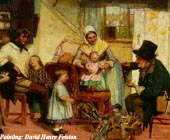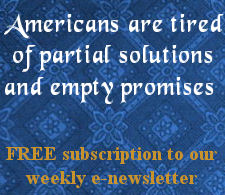 When speaking of the traditional family, we must see it as more than just the sum of living members composed of a father, mother, and children. Throughout history, the family has always been understood to mean the unity of the whole lineage of ancestors and descendants.
When speaking of the traditional family, we must see it as more than just the sum of living members composed of a father, mother, and children. Throughout history, the family has always been understood to mean the unity of the whole lineage of ancestors and descendants.
It was only with the Enlightenment that this universally held belief was called into question. Jean Jacques Rousseau takes his individualism so far that he holds that children “remain attached to the father only so long as they need him for their preservation. As soon as this need ceases, the natural bond is dissolved.”(1) Such views form the foundation of modernity where the family is increasingly regarded as a mere convention and the individual is made to reign supreme.
Our model does not refer to this modern mutilation of the family, which dissolves at adulthood or death. Rather, in the words of Msgr. Henri Delassus, the family is “one and continuous,” containing the “whole lineage of ancestors and that of the descendants who would come in the future.”(2)
***
(1) Jean Jacques Rousseau, “Social Contract,” in Rousseau, vol. 38 of Great Books of the Western World, 387. Such Rousseauan ideas that would seem to reduce family relationships to those of the animals circulated widely at the time of our nation’s founding. We find, for example, figures like Thomas Jefferson affirming that every generation must create itself anew since the earth belongs always to the living generation. Reflecting the strong influence of Rousseau, Jefferson asserts: “Every constitution then, and every law, naturally expires at the end of 19 years. If it is to be enforced longer, it is an act of force, and not of right.” Richard K. Matthews and Elric M. Kline, “Jefferson Un-Locked: The Rousseauan Moment in American Political Thought,” in History, on Proper Principles: Essays in Honor of Forrest McDonald, eds. Stephen M. Klugewicz and Lenore T. Ealy (Wilmington, Del.: ISI Books, 2010), 141-2.
(2) Henri Delassus, L’Ésprit Familial dans la Maison, dans la Cité, et dans l’État (Cadillac, France: Éditions Saint-Remi, 2007), 99. (American TFP translation.)
 John Horvat II, Return to Order: From a Frenzied Economy to an Organic Christian Society—Where We’ve Been, How We Got Here, and Where We Need To Go (York, Penn.: York Press, 2013), 180-1.
John Horvat II, Return to Order: From a Frenzied Economy to an Organic Christian Society—Where We’ve Been, How We Got Here, and Where We Need To Go (York, Penn.: York Press, 2013), 180-1.


